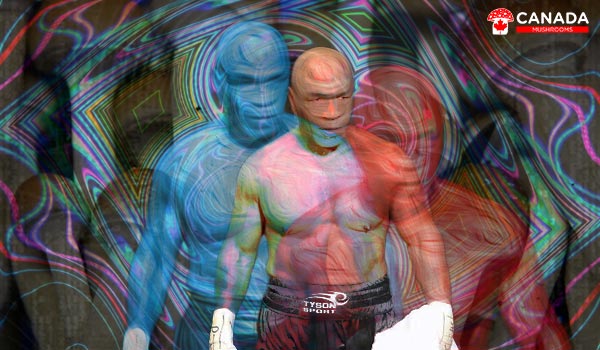Magic Mushrooms, Psilocybin, Psychedelics, Therapy
Psilocybin as a Solution for Athletes
Introduction
Traditionally, the use of psychedelics by athletes has been met with skepticism, as it is believed to provide an unfair advantage. However, recent developments suggest that psilocybin may be a game-changer for athletes who experience head trauma. Dana White, the president of the Ultimate Fighting Championship (UFC), has announced that they are deeply invested in researching the potential benefits of psychedelics for their fighters. Head trauma is not exclusive to combat sports and the need for research in this area is crucial for the sports industry as a whole.
The Impact of Psychedelics on Athletes

It is well-known that microdosing improves physical performance, but it can also be used to address physical issues stemming from athletic activity, such as head trauma. The UFC has confirmed that they are conducting a study on the brain health of their athletes with the help of magic mushrooms in partnership with the John Hopkins Center for Psychedelic and Consciousness Research, a leading institution in psilocybin research. Their studies have shown that psychedelics may have therapeutic effects on individuals suffering from mental and physical conditions such as addiction, depression, and brain injury. Despite their interest in the potential of psychedelics to help fighters, the UFC has not yet officially approved or sanctioned their use by athletes and there is no set timeline for when they plan to begin incorporating them. Governments currently classify psychedelics as Schedule I Drugs, with no medical purpose and a high potential for abuse. However, with continued research from reputable institutions like the John Hopkins Center, there is a growing belief that psilocybin and other beneficial drugs may be approved for use by the government. The question remains, how will the sports world respond to this potential approval?

Athletes in Need
The recent interest in psychedelics for athletes is not new and the case for athletes experiencing head trauma to take supplements like psilocybin has been building for years. Some UFC fighters have described their experiences as giving and receiving PTSD. Trauma is stored in the tissue, and any significant damage to the head and brain can accumulate and lead to various mental disorders. The physical and mental toll of their work is becoming increasingly important to address, and psychedelics may offer a novel solution.
Conclusion
Athletes, both active and retired, often struggle with addiction, memory loss, and depression. However, many athletes are hesitant to reveal their mental health issues, likely to maintain an image of invincibility. UFC fights, like many other contact sports such as football, wrestling, and hockey, can result in head trauma and brain injury. Injuries like concussions are unfortunately common and the effects may not be fully felt until long after an athlete’s retirement. This is referred to as chronic traumatic encephalopathy (CTE), a degenerative brain disease that has been depicted in films such as “Concussion” starring Will Smith.

